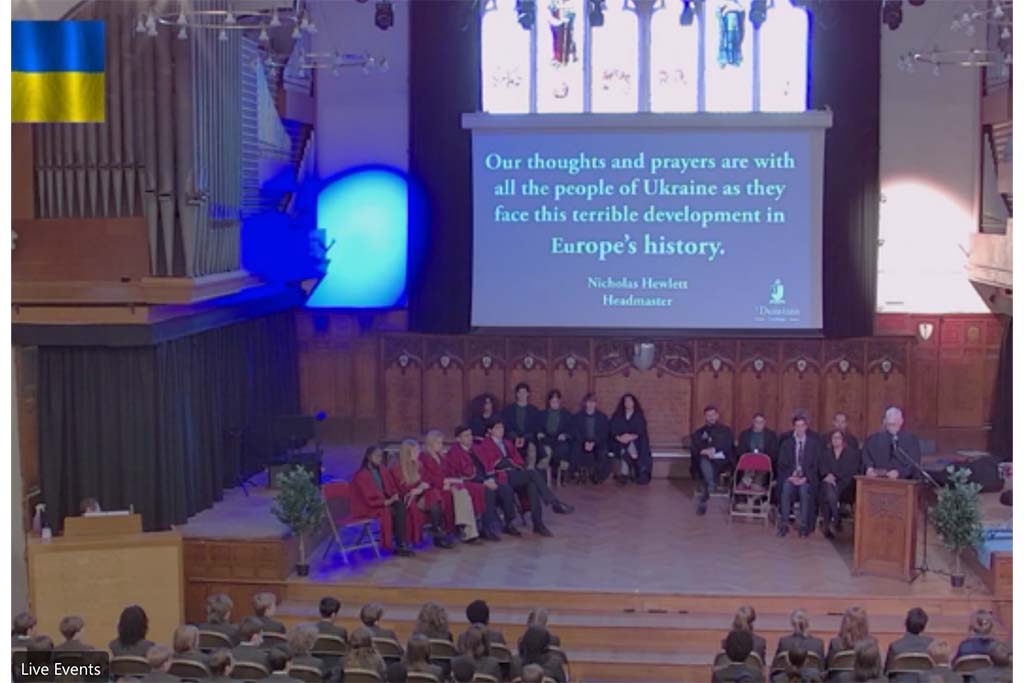
- HOME
- EDUCATION
Reflections on Speaking to Children About the Ukraine Crisis
By | 2 years ago
Many of us have been horrified at the Russian invasion of Ukraine in recent days. St Dunstan’s College’s Deputy Head Pastoral, Jade McLellan, gives her advice on how to talk to children who may be feeling worried or anxious about the current situation.

Be Proactive
Although it is natural to want to shield children from upsetting news, in a world where rolling news coverage and social media updates collide with playground chat, it is inevitable that even quite young children will have some awareness of the current situation. If you have any sense that your child will be hearing about the war elsewhere, it is far better to raise the discussion proactively so that you explain what is happening in a child-friendly way, and respond to any questions before playground rumour or even fake news sets in. This shows your child that they have a safe person to come to if they have questions in the future and reminds them that they can be open about their feelings and worries.
Be Appropriately Reassuring
Children of all ages are likely to focus on absolutes such as “Will we be going to war” or “will we be hurt?” You can reassure them of the measures being taken all over the world to avoid such an outcome and remind them of the longstanding peace we have enjoyed in Europe, due to past diplomatic successes, even at crisis point. We should also be cognisant that older children and adolescents still remember the recent upheaval of the pandemic, which many adults played down at the onset. Therefore, we should be also honest about what we don’t know, rather than offering false reassurances that could undermine their trust and confidence in their parents.
Support Their Altruism and Compassion
A sense of helplessness can reinforce patterns of low mood amongst both young and old. Focus on what can be done to help those affected, whether that is donating to the Red Cross, or collecting items for a local refugee charity. Despite its oft-reported disadvantages, this is an area where social media can be a real asset as you can find out information about local donation points or other initiatives to support. You can also remind them that many Russians do not support the invasion, so it is not simply a case of good guys versus bad guys.

Keep to Normal Routines
Children will feel reassured if they are able to go about their normal activities, both inside and outside of school. After school and at the weekend, continue to take your children to football, swimming or tennis lessons and get out of the house – don’t stay glued to 24-hour news updates. These activities will provide a welcome diversion for the whole family. Furthermore, children are more likely to open up and talk during informal occasions such as when sitting side by side in a car or going for a walk, so by taking them out with you, you are also providing opportunities for further discussion or questions if needed.
Be Conscious of Conversations Between Adults
If you already have concerns about the impact on your own lives, such as increased petrol or gas prices affecting your family finances, try to have those conversations between the adult members of the family without children around. It can be difficult for young people to fully comprehend the comparative gravity of a situation and some children (and adults!) may be prone to catastrophise in such situations; we all remember the panic buying of pasta and loo rolls!
Children are very sensitive to picking up on both the content and tone of adult conversations and resilience is already strained after two years of living in a pandemic, causing anxiety to bubble to the surface more readily. By giving children an outlet and carefully managing healthy conversations about the crisis, we allow them to build resilience and trust as they understand that fears can be shared and examined together: they do not have to face them alone.
See St Dunstan’s Online listing here.



